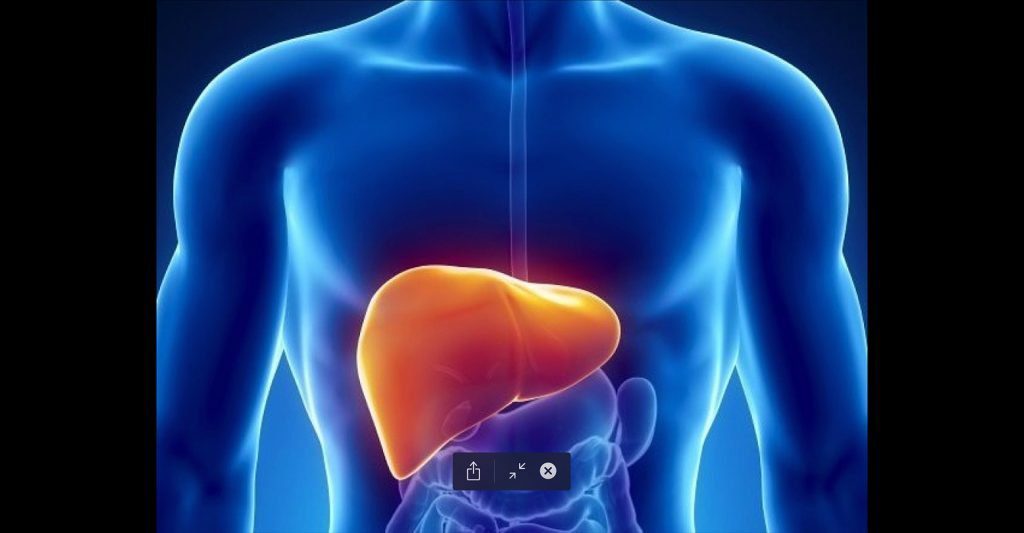
This large, meaty organ sits on the right side of our belly and plays a vital role in the balancing of our metabolic system. It is the largest organ and one of, if not the most, important. We need the liver to process all of the nutrients in our food – protein, carbs, fats, vitamins, and minerals. We need the liver to filter out all of the toxins that enter our body.
Our bodies rely on the liver to convert food into energy, clean out poisons (including alcohol), help to digest our food, help produce hormones, store glycogen, and regulate generally every important function of our metabolic process.
The liver literally receives 30% of the blood circulating through your body every minute in order to perform its detoxifying and nutrient absorbing tasks. The liver keeps you energized. While carbohydrates can provide the body with energy, it is the liver that actually manages its distribution. Once the gastrointestinal tract breaks the carbs down into glucose, the liver regulates and maintains the healthy levels.
The liver will actually store any excess amounts, in the form of glycogen, and convert it back to glucose whenever your body is in need. Typically, this is necessary when you exercise, fast, or simply in between meals.
The liver also turns fat into energy. This powerhouse organ breaks down fat, and its compounds. The it converts it into a form of a storage molecule and pulls from that storage whenever your body is in need. When energy levels are low the liver is able to convert these resources back into glycerol and fatty acids in order to provide an alternative energy source.
The Liver’s Filtering Abilities
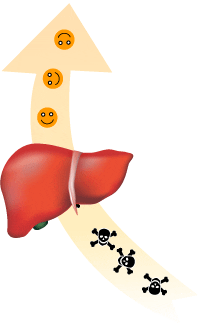
This liver is able to filter the blood and remove any harmful cells, microbes, and hormones. This is done through the liver’s production of bile. Bile is stored in the gallbladder. Toxic invaders are neutralized and sent to the intestines or the kidneys to be excreted out of the body via the urine and bowels.
The liver does much of the same when it comes to protein. It takes the amino acids that were broken down in the intestines and removes the nitrogen. Nitrogen turns into ammonia and then quickly converts it into urea so it can be excreted through the urine. The excess amino acids are then either turned into fat for storage, or used to create glucose when energy is needed. The liver also stores all of our vitamins and minerals and can deliver them to the body whenever it is in need.
The liver may just be one of the most fascinating and forgiving of all organs. It literally has over 500 functions in the body. It is an organ that just keeps giving, despite all of its abuse. As your number one protector, could you be doing more to help the liver do its job?
The liver faces a daily onslaught of abuse from pathogens and toxins in our environment, water, air, hygiene and household products, and our diet. From the time we were nothing more than a fetus in our mother’s womb, our liver was already protecting us as our first, and main level, of defense. The liver cleans your blood, your lymphatic system, and supports your adrenal glands. Healing and cleansing the liver can help heal and cleanse all of the above.
What are some signs of liver congestion?
- Headaches
- Constipation
- Fatigue
- Insomnia
- Cloudy Feeling / Brain Fog
- Digestive problems
- Itchy Skin
- Liver area pain
While many of these symptoms could be related to other non-liver causes, be sure to pay attention if you are suffering with four or more. This could signal the need to detoxify the liver.
Did you know the liver has the ability to regenerate itself every 9 years?
It does so in thirds, upon three-year cycles. The health of the cells that replace the old cells is solely up to us. Are you replacing them with healthy cells or toxic and damaged cells? Will eating clean in the months leading up to those 3-year birthday cycles help? It certainly will. Do not focus on a super-cleanse or get wrapped up in the gazillion fads you hear about how to regenerate the liver. Do what makes sense. Eat right, provide essential herbs and nutrients, and balance that lifestyle.
Many of today’s common ‘quick-fix’ solutions are simply too harsh for proper cleansing and regeneration. Shocking an organ into submission simply won’t work and can even further burden the already stressed portion of our body. Aggressive cleansing can backfire and cause more harm than good. Detoxification should come from rest and nourishment.
- Forget the coffee enema, the oil and Epsom salt, the apple cider vinegar, the ox bile, the alkaline water, and the liver flushing approaches. Keep it simple and gentle.
- Reduce or eliminate alcohol and caffeine.
- Drink plenty of water. Choose a high quality, filtered, pH balanced (not alkaline) source.
- Eat plenty of cleansing fruits (low fructose) and vegetables. Strawberries, blueberries, raspberries, lemon, dragon fruit, carrots, tomatoes, grapefruit, avocado, garlic, broccoli, and leafy greens are all great resources. Walnuts and Turmeric are also stimulating and cleansing for the liver. While beets have been hailed as the detox queen, be sure to obtain a non-GMO and organic source. The majority of our beet sources are tainted.
- Avoid artificial dyes, sweeteners, and preservatives.
- Eat healthy fats and avoid the bad.
- Aim a whole food diet and avoid fast, processed foods.
- Eat more herbs, consume gentle supplements, and go as organic as possible.
When it comes to Gout…
There is a significant relationship between this disease and this organ. The liver intends to make use of and metabolize uric acid before it heads to the kidneys for filtration. If either or both the kidneys and the liver are ‘clogged’ and unable to perform these basic tasks, uric acid build up will begin to take place.
Liver function is essential key to the puzzle. While the liver is busy with so many important jobs, it can leave something as natural as uric acid “on the backburner”. Uric acid is not seen as foreign or dangerous by the body, and in fact is a necessary protector of our DNA.
If we are overloading the liver on a daily basis and it has to focus on all of the jobs we mentioned above, it simply won’t have the time to deal with uric acid. Any excess will be stored and eventually attack you. Gout occurs when the excess is unable to leave the body and builds up in storage areas including the liver, the blood, the fat, the tissues, and ultimately in the joints where it can attack.
The liver is hard at work for your body day in and day out. Show your liver some love as taking care of this organ is the absolute best thing you can do for your body. Eat right, exercise, take some liver-loving supplements, and do your best to avoid unnecessary damage to this essential organ.

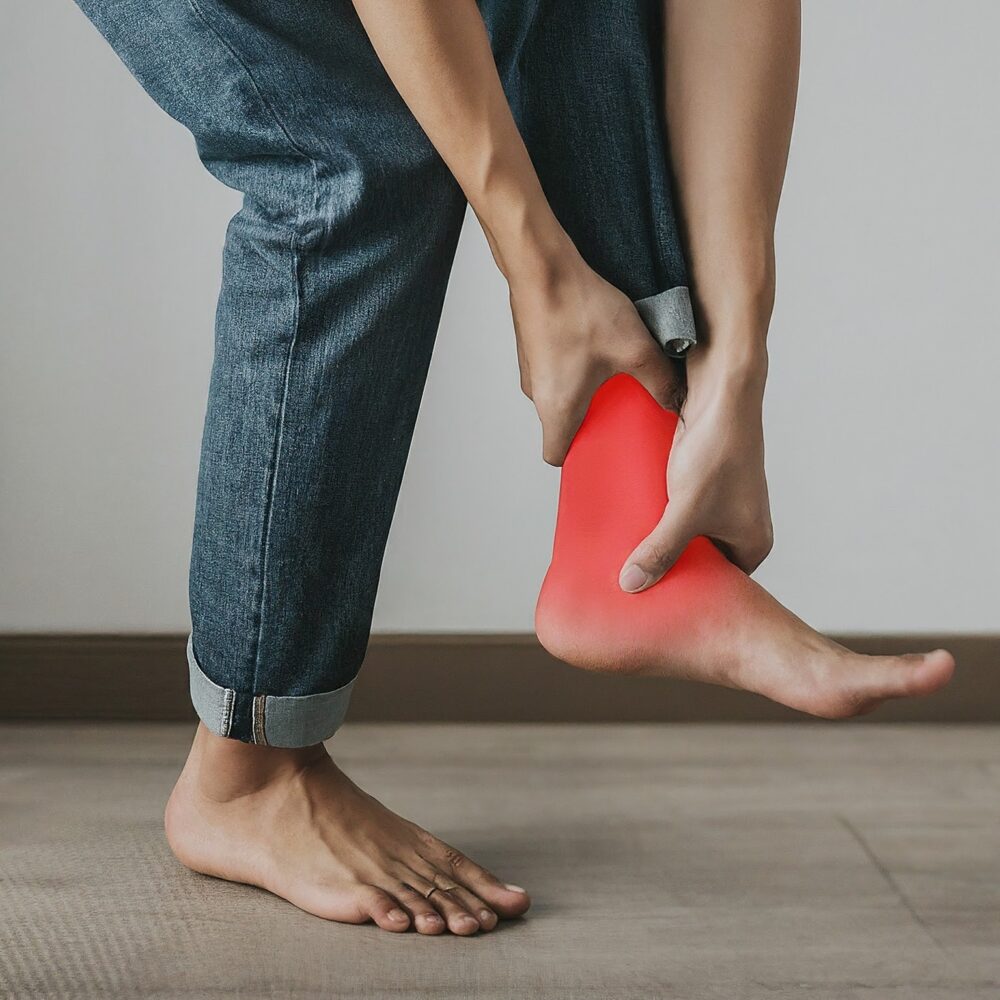
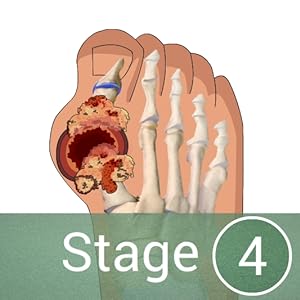
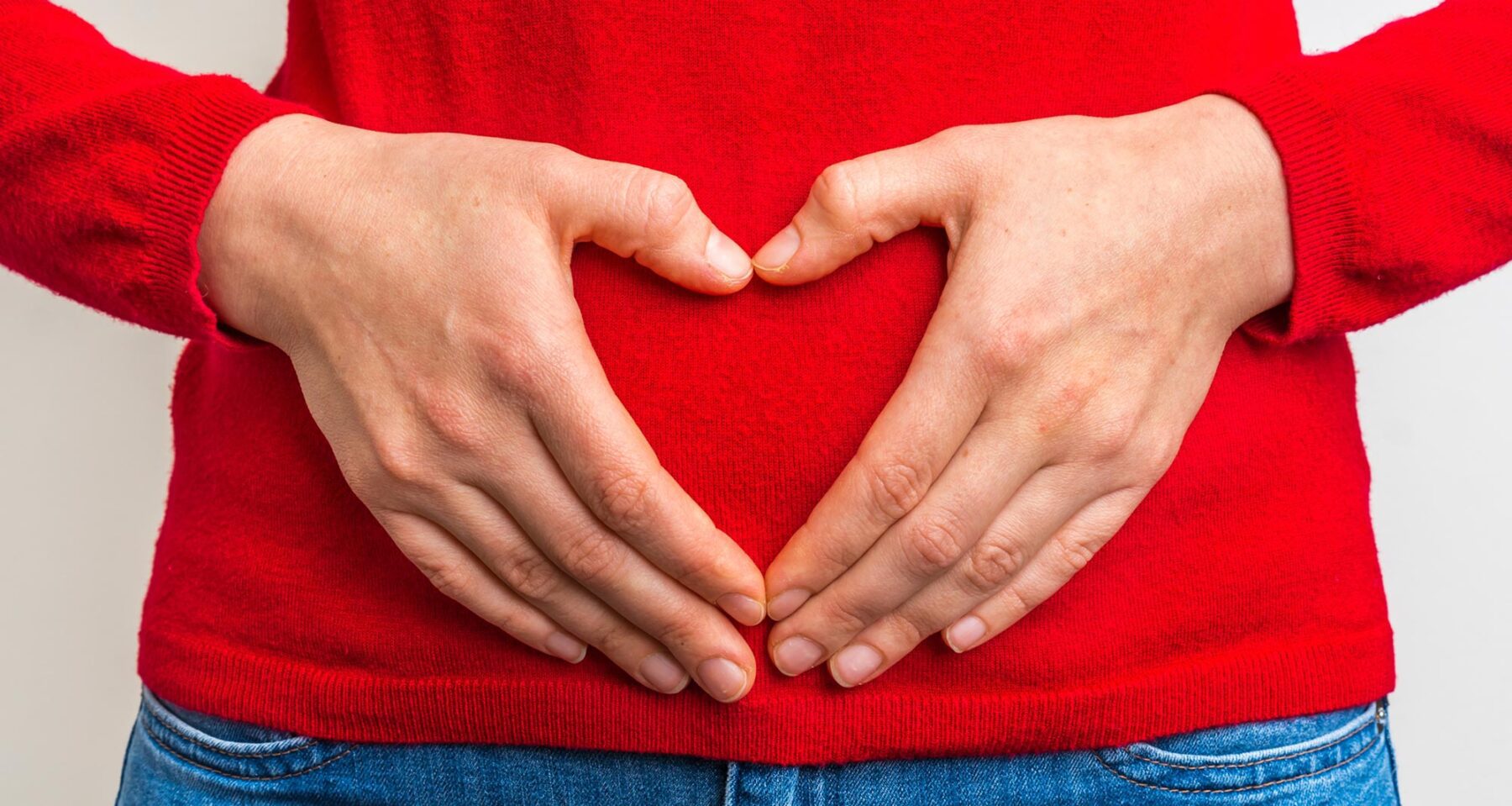

Leave a Reply